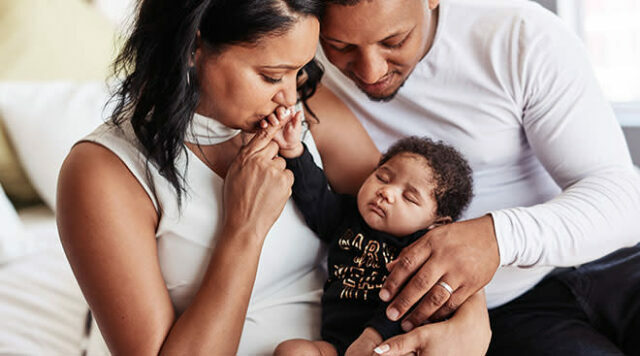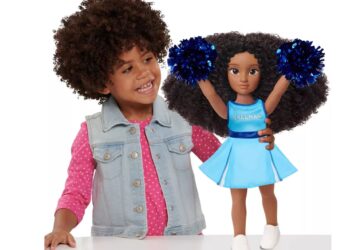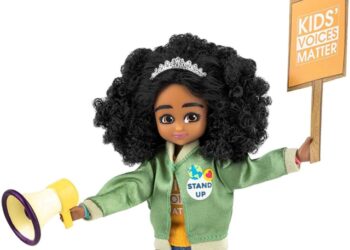According to the American Academy of Dermatology, eczema affects as many as 25% of children in the United States. Per the Center for Disease Control and Prevention, of those 25%, 14.2% of those children are Black. Yet, as Black babies are the highest populous of eczema sufferers, parents find it difficult, if not next to impossible, to find products to help their children find relief. Aveeno Baby is trying to change that. Through their Eczema Equality Campaign, the company is working to provide the eczema resources that Black babies need.

“The underlying cause of eczema is multifactorial, with both genetics and the environment playing a large role. Black children are almost twice as likely to develop eczema than White children,” Laura Scott, MD, FAAD, a dermatologist and a mother based in California, explained in an interview with Parents.com. “Quite honestly we don’t have enough data to understand why yet.”
Dr. Scott went on to discuss how even the appearance of the skin condition presents differently in Black children.
“Instead of the classic red, inflamed patches commonly seen in lighter skin tones, actively flaring eczema may appear as purplish in color, and common areas can get darker (or even lighter) over time in babies with darker skin.
She continued, “It is also more common to see papular or follicular presentations, so instead of one large affected area, we can see smaller itchy raised bumps or prominence of the hair follicles.”
Aveeno Baby is continuing to advocate for equality among eczema sufferers, especially this month, as October is National Eczema Awareness Month. The company recently launched a new video highlighting a group of diverse parents that are caring for children with eczema. Among the group is mother, Chanel Iman.
A few weeks ago, the supermodel took to Instagram to announce that she had become an official ambassador for Aveeno Baby.
“Eczema care has been a huge part of my daughter Cassie’s daily routine, so much so that “itchy” was one of her first words. I’m proud to be an ambassador for @AveenoBaby and tell you more about her eczema journey. #AveenoBabyPartner,” she posted on the social media platform.
Iman continued, “Little things have a big effect on her sensitive skin. For example, the ocean can irritate it, and when it comes to her clothes and bedding – I wash everything separately, with no fragrances whatsoever, so she can dress and sleep comfortably. Despite eczema being the 2nd most common skin condition affecting the Black community, there’s still work to be done to address the issues of representation and underdiagnosis on skin of color.”
The 32-year-old went on to ask other mothers to share their own parenting journey’s with eczema in order to receive a night time Aveeno eczema product.
“Knowing eczema occurs more frequently on Black skin but is often undiagnosed made us feel like this was going to be an issue that wouldn’t be resolved on its own,” said Trisha Bonner, head of marketing at Johnson & Johnson Baby in 2021 when Aveeno Baby launched the Eczema Equity program. “We felt like someone needed to do something about it.”
And, they unquestionably have! To find out more about the Aveeno Baby Eczema Equity program and their line of products, click here.
Photo Credit(s)/Featured Image: Chanel Iman Instagram; Aveeno.com







